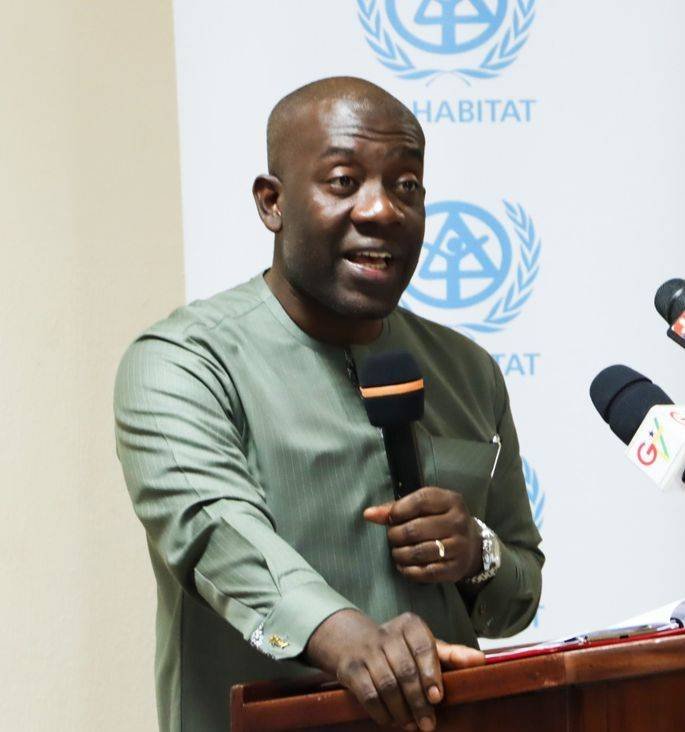A new district housing programme to help address the country’s 1.8 million housing deficit is scheduled to take off this year.
This follows conclusion of discussions between the Ministries of Works and Housing and Finance to expand the operations of the National Homeownership Fund for the commencement of the programme.
The initiative will develop housing for public servants in the peri-urban areas and districts using local construction materials and blended financing cost.

speaking at the opening of
the programme
According to the Minister-designate of Works and Housing, Mr Kojo Oppong Nkrumah, the programme, which was one of government’s interventions to address Ghana’s housing deficits, would also include mortgages to support buyers.
Speaking at a validation workshop on Ghana’s new housing profile in Accra, yesterday, he said the fund was utilised to pilot developments in Community 22 at Tema by the TDC Company Limited.
Additionally, he noted that the government was engaging housing industry groups, including the Ghana Real Estate Developers Association (GREDA), to develop an incentive package to attract private sector master developers in the development of affordable housing projects.
“We in Ghana need to understand that we cannot resolve a 1.8 million housing deficit without the partnership of the private sector through incentives. Competitor countries such as Kenya, Ivory Coast and others have put up very attractive packages and have already started benefitting.
We have commenced engagements with industry groups such as GREDA towards developing Ghana’s incentives package and getting the necessary cabinet and Parliamentary approvals for this,” Mr Oppong Nkrumah stated.
Currently, he said the ministry was accelerating the execution of the affordable housing programme, including the over 10,000 housing units being worked on currently in Accra, and the about 5,000 units planned for Dedesua in the Ashanti Region as well as the many abandoned projects in Koforidua, Saglemi and various parts of the country.
Abena Ntori, Country Manager, United Nations (UN)-Habitat, stated that the growing urgency to meet housing demands had become more critical due to the phenomenon of climate change.
She said the revised Ghana housing profile would reflect current day realities which would inform policy, guide investment decisions for the different income brackets, explore the use of sustainable building materials and promote different sector stakeholder institutional collaborations.
Director of UNOPS Ghana Multi-Country Office, Ifeoma Charles, reiterated the need for the integration of sustainability, resilience and inclusive infrastructure in the new housing profile in view of urgent climate emergency, and escalating weather-related risks, existence of vulnerable communities and gender challenges to land ownership, among others.
Professor Clifford Amoako, Head of the Department of Planning, Kwame Nkrumah University of Science and Technology (KNUST), said the new housing profile was to inform the planning and programming of housing investments and management of activities in the sector.
Additionally, he noted that the new profile would help in estimating housing demand and supply trends, explore the various drivers of housing delivery, slums and homelessness and identify emerging issues in the housing sector.
BY CLAUDE NYARKO-ADAMS



















Discussion about this post